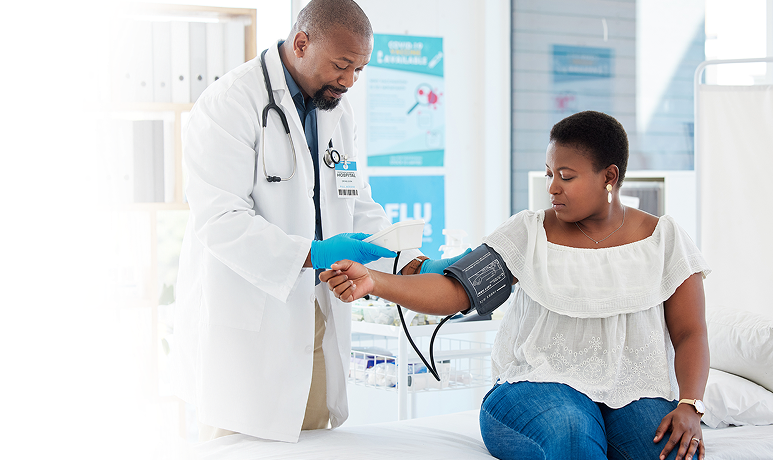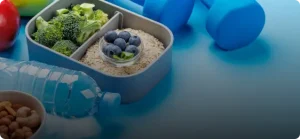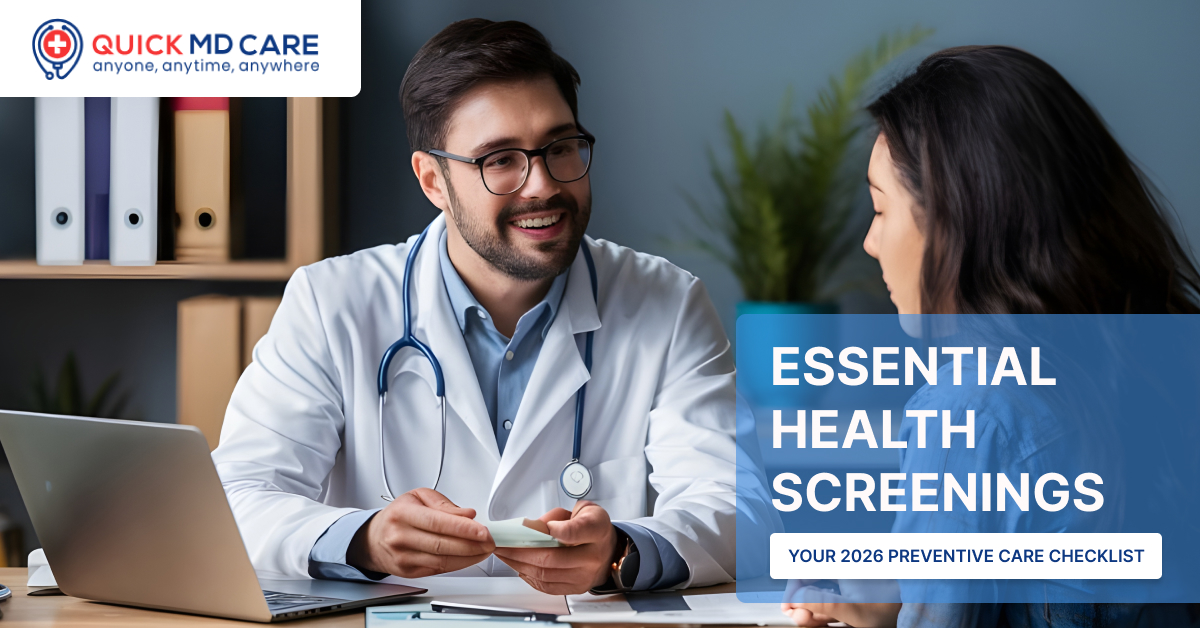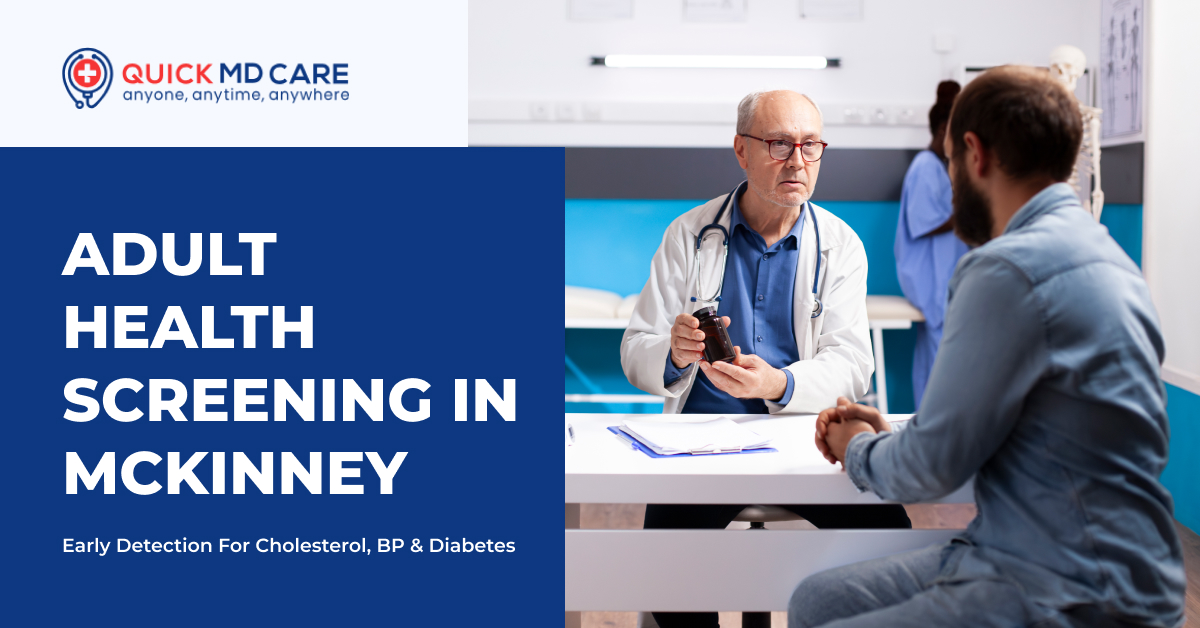“The patient who knows more, does more—and does better.”
— Dr. Linda Burke, Family Medicine Specialist
Living with diabetes and hypertension isn’t just about managing numbers on a chart. It’s also about understanding your risks and getting an idea of what decisions to make.
Diabetes type 2 hypertension is even worse.
According to the CDC, over 38 million Americans live with diabetes. The good news? With the right guidance, both can be effectively controlled. And that begins with one simple yet powerful step! Do you know what? It’s asking the right questions with respect to hypertension and diabetes treatment.
At QuickMD Primary Care in McKinney, TX, patients get personalized care. The team is very compassionate and answers all your questions with a smile. Here, take a look at the questions you must ask!
Questions About Your Hypertension and Diabetes Treatment
Q: What is my blood pressure? What level of blood sugar is dangerous?
Normal blood pressure is lower than 120/80 mmHg, whereas healthy fasting blood sugar varies between 70-100 mg/dL. Post meal, after 2 hours, your ideal diabetes level should be within 140 mg/dL. Ask your physician how you are doing- and what it means in terms of risk. Knowing the exact numbers are needed to understand your health condition.
Q: How severe are my conditions, and what is my risk level for complications?
Your doctor may tell you whether you have prehypertension or stages 1 and 2 of high blood pressure or type 2 diabetes and what it means for your daily living and in long-term perspective.
Q: Do diabetes and hypertension have any connection, and how do they influence one another?”
Absolutely. There is a close connection between hypertension and diabetes. Blood vessels may be damaged by high blood sugar, thus increasing blood pressure. High blood pressure may exacerbate such diabetes-related problems as kidney disease or eye disease.
Medication Management for Hypertension and Diabetes Treatment
Q: What are the medications that I require, and how do they work?
Be it metformin or ACE inhibitor, becoming aware of how your drugs work will help you continue to take your pills regularly. Ask which ones are for blood sugar and which ones are for pressure–and is there anything that does both.
Consult a renowned hypertension specialist for the medications.
You can get in touch with an expert hypertension doctor and diabetes care specialist in McKinney from QuickMD Primary Care, McKinney, TX.
Q: What are the possible side effects to look out for?
The side effects of hypertension medication used to treat diabetes may even come with the best medication. The usual ones are dizziness, tiredness, or hypoglycemia. Type out “hypertension specialist near me,” and find the best one near you!
Q: When should I take my medications, and can I take them together?
Everything depends on timing. There are some drugs that have to be taken with food, and then there are those that have to be taken when the stomach is empty. Your doctor will assist you in planning the most effective blood pressure medication, avoiding any interactions.
Monitoring & Testing for Hypertension and Diabetes
Q: How frequently should I check my blood pressure and blood sugar at home?
Your blood pressure and blood sugar levels require checking on a daily basis. When your readings have stabilized, your doctor can advise you to be monitored regularly or once every week. Tools such as digital logs or a smartphone app can be of help.
Q: What are the routine tests, and how frequently should I take these tests?
The common routine tests include A1C, lipid panel, and kidney function tests. Get them done from QuickMD Primary Care, McKinney, TX, and keep a constant check on your health.
Lifestyle Changes to Prevent Hypertension and Diabetes Complications
Q: What should my dietary changes be?
Eat a DASH or a Mediterranean diet. Eat more leafy green, less salt, and fewer processed carbs. Request a meal schedule that is suitable for you.
Q: Which form of exercise is safe and good for me?
During and after meals, a simple stroll of 15 minutes does the work. It is better to exercise moderately. Begin gradually, and regularity is preferred to vigor.
Understanding Diabetes and Hypertension Complications
Q: What complications should I watch for?
Hypertension and diabetes may occur without control and cause loss of vision, kidney disease, nerve destruction, and heart failure. Study the red flags- such as blurred vision, swelling, or tingling in your feet.
Q: What should I do to save my heart, kidneys, and eyes?
Preventive care is effective. Inquire about routine eye tests, kidney tests, and heart checkups. Some actions today can avoid big losses tomorrow.
Q: At what time do I need to see a specialist?
In case the symptoms have not ceased or grown worse, your primary care provider can refer you to a certified specialist of hypertension, endocrinologist, or nephrologist for the best medicine for hypertension. You can contact the best heart disease prevention specialist from QuickMD Primary Care, McKinney, TX.
Empowered Patients Ask More
The more you inquire, the more you know- and the more you gain control. QuickMD Primary Care team empowers patients with clarity and information to live a healthy life in McKinney, Texas effectively.
Frequently Asked Questions (FAQs)
1. Which are the most appropriate questions to submit to my doctor regarding diabetes and hypertension?
Ask questions about readings, condition severity, medication plans, potential issues, and lifestyle adjustments to effectively manage your health.
2. Is it possible to treat diabetes and hypertension together?
Yes. QuickMD Primary Care, McKinney, TX, has been offering complete plans to treat both conditions. The team does so with the help of medications, nutrition, and regular monitoring.
3. What is the best treatment for hypertension and diabetes?
Treating hypertension and diabetes effectively requires a combined approach: medication (ACE inhibitors/ARBs) and lifestyle changes (diet, stress reduction).



